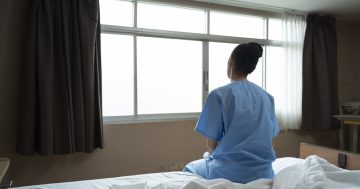 The Women and Children’s Hospital WCH) marked Body Image and Eating Disorder Awareness week last week (5-12 September) by encouraging people to learn the early warning signs of eating disorders, and to help families get the support they needed.
The Women and Children’s Hospital WCH) marked Body Image and Eating Disorder Awareness week last week (5-12 September) by encouraging people to learn the early warning signs of eating disorders, and to help families get the support they needed.
According to the Hospital, more than a million Australians are currently experiencing an eating disorder and it comes with a higher death rate than any mental illness.
“The stigma associated with eating disorders can become a barrier to diagnosis and treatment and impact recovery for those experiencing the illness,” the Hospital said.
“Eating disorders often creep in very slowly and a person will often go to great lengths and to hide their behaviour because of genuine fear and anxiety around eating and weight gain.”
It said that during Body Image and Eating Disorder Awareness week it heard parents say they thought their children were typical teenagers simply finding their own personality in life by becoming vegetarians and wearing baggy and oversized clothes.
“We didn’t think that our child staying in their room all the time, sleeping in, being moody, and not wanting to eat with the rest of the family could be hiding something more sinister,” the parents said.
“We were in disbelief when they were diagnosed with Anorexia Nervosa. There were so many individual signs that I hadn’t seen as part of the bigger picture.”
WSC said evidence showed that early diagnosis and intervention can greatly reduce the duration and severity of an eating disorder.
“Prolonged starvation can result in significant mental, physical and social impairment by changes in cognition, behaviour, and interpersonal characteristics,” it said.
“Disturbed eating patterns such as fasting and skipping meals, eliminating food groups, restrictive dieting accompanied by binge eating and excessive exercise can be an important indicator of the onset of an eating disorder.
“It is really important to seek professional help at the earliest possible time,” WSC said.
It said it runs parent education session for families to help them understand the disorder and provide support.
“If you are concerned, please speak to your GP or Mental Health Clinician who can refer you to the appropriate eating disorder service,” the Hospital said.
Its website page dealing with eating disorders can be accessed at this PS News link.











